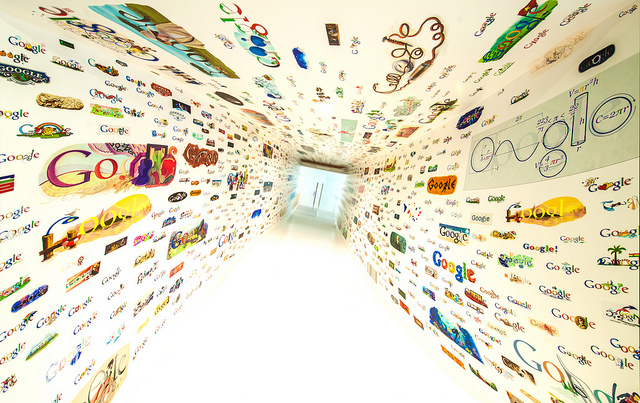The development of an “authentic” online professional profile is multi-dimensional. Most of the ideas that were shared among my peers were pretty insightful. Some details of the development of the “authenticity” aspect were discussed in specifics. While others, took a rather broad approach on the subject.
I was intrigued by some of the analogies introduced by my peers. Specifically, Sara (2014) built the concept upon a “product” on the shelves of a supermarket, while Zoe (2014) used the concept of “advertising”. These concepts triggered my curiosity upon what is truly an “authentic” profile, which makes it unique and successful. This led me to look deeper into it and I was inspired by a concept introduced by Simon Sinek (2009) on “the Golden Circle” in a talk he gave on “How great leaders inspire action”:
By adopting this concept, I was able to present the ideas in the following diagram:

“The Golden Circle” adapted from Simon Sinek (2009)
Little did we realize the importance of “starting with why”. Simon (2009) mentioned that “people don’t buy what you do, they buy why you do it”. Upon bringing this concept forward, I realized that “recruiters” buy the “authenticity” of your profile. This is further supported by some of the video CVs that were shared among my peers. The “authenticity” of these candidates was the main reason why they were successful.
I believe that this powerful concept puts things in a clearer perspective. Of the millions of profiles out there in the digital sphere, we realized that achieving “authenticity” is a challenge. This concept is not only evident in terms of employability, but in many different aspects as well. The whole idea of “marketing” may also be built upon this concept, as explained by Simon (2009) in the video!
References:
Lee, S.D., 2014. Personal Branding – your career insurance! Available at: http://saradanlee.wordpress.com/2014/12/03/personal-branding-your-career-insurance/comment-page-1/#comment-9 [Accessed December 4, 2014].
Review, H.B., 2013. The Future of You. Harvard Business Review. Available at: https://hbr.org/2013/01/the-future-of-you/ [Accessed December 3, 2014].
Sinek, S., 2009. TED: How great leaders inspire action. Available at: http://www.ted.com/talks/simon_sinek_how_great_leaders_inspire_action?language=en#t-188800 [Accessed December 4, 2014].
Sinek, S., 2014. Start With Why. Available at: https://www.startwithwhy.com [Accessed December 4, 2014].
Yee, Z., 2014. Online meets Offline. Available at: http://zoeyeeze.wordpress.com/2014/12/03/online-meets-offline/comment-page-1/#comment-13 [Accessed December 4, 2014].
Comments made on:
Lee, S.D., 2014. Personal Branding – your career insurance! Available at: http://saradanlee.wordpress.com/2014/12/03/personal-branding-your-career-insurance/comment-page-1/#comment-9 [Accessed December 4, 2014].
Yee, Z., 2014. Online meets Offline. Available at: http://zoeyeeze.wordpress.com/2014/12/03/online-meets-offline/comment-page-1/#comment-13 [Accessed December 4, 2014].
